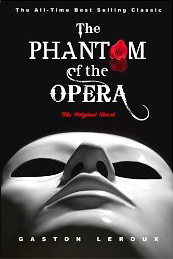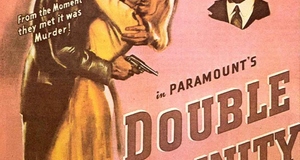Freudian Theories Present in Leroux's "The Phantom of the Opera"
By
2010, Vol. 2 No. 11 | pg. 1/1
KEYWORDS:
The Phantom of the Opera was originally penned as a French serial by Gaston Leroux in 1909. It tells the story of a young man, Erik, who is born with a terrible deformity in his face. Erik is outcast by his parents, and eventually comes to live beneath the Paris Opera House, where he ‘haunts’ the Opera, masquerading as a ghost, using secret passages throughout the building in order to move about.  Contemporary adaptations of The Phantom engage with several key Freudian concepts in order to explain and justify the development and motivation of the protagonist. These concepts, while present in Leroux’s original text, have been extended and emphasised by these post-Freudian adaptations. Freud’s integration as part of contemporary popular culture allows these modern texts to make psychoanalytical assumptions about the characters in the text. For the purposes of this analysis, this essay is focused on two key Freudian ideas which are found in the text, namely the separation of the human mind into Consciousness and Unconsciousness, and the division between them due to the resolution of what Freud describes as the ‘Oedipus Complex.’ The Oedipus theory elaborates on the ‘divided consciousness’ theory, explaining how it is that the separation occurs, and what factors contribute to the mediating force of repression between the two ‘consciousnesses.’ Freud theorised that the conscious1 mind was influenced by the unconscious, which produced thoughts, ideas and memories not particularly associated with the present activity of the consciousness. Freud’s proof for the existence of this fundamentally undetectable part of the mind was to analyse the symptoms2 of the projection of these unconscious or latent thoughts. Post-hypnotic suggestion, where an individual is placed under a trance and given an instruction to complete upon awakening, is an example of a latent thought becoming active – however in this case, the conscious mind would be unaware of the suggestion; “Not the whole of [the thought] emerges into consciousness: only the conception of the act to be executed.” (Freud, The Unconscious 1984, 51)In the Leroux novel, Erik is able to masquerade to Christine as the ‘Angel of Music’ by resonating with unconscious memories of her own deceased father. Christine later states: “I had never got the Angel of Music whom my poor father had Freud’s topographical theory of this split between the Consciousness and Unconsciousness also introduces a third device. A mechanism of repression is employed by the consciousness as a means of filtering inappropriate thoughts emanating from the unconsciousness. Mansfield (Subjectivity 2000) elaborates: “In their endeavour to enter the conscious mind and gain expression and This repression is made up of a structured set of moral values and codes that are learnt by the developing child. The Dissolution of the Oedipus Complex (Freud 1977) pinpoints where this repressive structure forms, and also discusses the causes for its creation. Freud’s suggestion is that the male child wishes to replace his father in the family structure, identifying the paternal figure as authoritative; therefore by extension, having sexual relations with his mother. At the same time, the boy has become fascinated with his own penis; “he betrays the fact by manipulating [his penis] frequently.” (Freud, Oedipus, 316) This is met with stern disapproval from authoritative figures, typically women, but including the father. The complex itself then, is how to replace either the mother or the father without the loss of the penis through castration3. Two outcomes are suggested by Freud for the complex; one, the child replaces the father and has intercourse with his mother, or alternatively, “he might want to take the place of his mother and be loved by his father...” (Freud, Oedipus, 318) Freud’s The Dissolution of Oedipus Complex theorises that adult subjectivity is determined by experiences in childhood, and that any experience that differs from the (Freudian) norm ‘are bound to have a very important bearing on the development of the individual.’ (322) A Freudian psychoanalysis of Erik would likely reveal an abnormal split between the consciousness and the unconsciousness. He repeatedly gives in to socially unacceptable desires (i.e.: murder, adultery, theft) and is capable of an almost insane fixation on what he wants (specifically, Christine). The Leroux novel suggests some childhood experiences that may account for Erik’s damaged development, for example: “He ran away at an early age from his father’s house, where hisugliness was a subject of honor [sic.] and terror to his parents. For atime, he frequented the fairs, where a showman exhibited him as the Leroux also describes some events from early in Erik’s life, where he travels to Persia and is employed as a Royal Assassin. It can be assumed that his training in this craft further impacted on his damaged psyche to the point where he normalises murder. In Phantom (1990), Susan Kay elaborates on the early childhood of Erik. One particularly climactic scene occurs when his mother takes Erik to the only mirror in the house to show Erik his own reflection: “He screamed and flung himself at the mirror, pummelling the A Freudian analysis indicates that Erik’s repressive mechanisms are either not functioning properly (that is, they fail to prevent him acting out his unconscious homicidal tendencies). Not only does Erik lack basic repressive techniques, also indicated by his frequent overemotional outbursts, but the alienation experienced by Erik, not only from his parents, but from all society, leads us to presume that Erik has a completely unresolved oedipal complex, and perhaps explains his reaction to compassion. The kiss he receives from the young actress Christine at the conclusion of the novel is the first human compassion Erik has known, and it serves as a catharsis for his character. ‘“How good it is … to kiss somebody on the forehead! My mother … It can be seen that Freud’s theories allow novelists to expand and explore the histories of literary characters, without consciously invoking a psychoanalytical approach. Freudian analyses can be located in literature published before Freud’s theories became widespread, showing that the adoption of Freudian ideas into contemporary popular culture has become second nature.
Notes (1) That is, conscious proper, denoting “the conception which is present to our consciousness and of which we are aware.” (Freud, The Unconscious, 50) (2) “An unconscious conception is one of which we are not aware, but the existence of which we are nevertheless ready to admit on account of other proofs or signs.” (Freud, The Unconscious, 51) (3) “…a threat is pronounced that this part of him which he values so highly will be taken away from him.” (Freud, Oedipus 1977, 316)
References Freud, Sigmund. "A Note on the Unconscious." In On Metapsychology: The Theory of Psychoanalysis, edited by Angela Richards, translated by James Strachey, 50-57. Penguin Books, 1984. —. "The Dissolution of the Oedipus Complex." In On Sexuality, edited by Angela Richards, translated by James Strachey, 315-322. Penguin Books, 1977. Kay, Susan. Phantom. London: Doubleday, 1990. Leroux, Gaston. The Phantom of the Opera. eText . University of Virginia Library. Virginia, 1994. Mansfield, Nick. “Freud and the split subject.” In Subjectivity: Theories of the self from Freud to Haraway, 25-37. Sydney: Allen & Unwin, 2000. Suggested Reading from Inquiries Journal
Inquiries Journal provides undergraduate and graduate students around the world a platform for the wide dissemination of academic work over a range of core disciplines. Representing the work of students from hundreds of institutions around the globe, Inquiries Journal's large database of academic articles is completely free. Learn more | Blog | Submit Latest in Literature |














